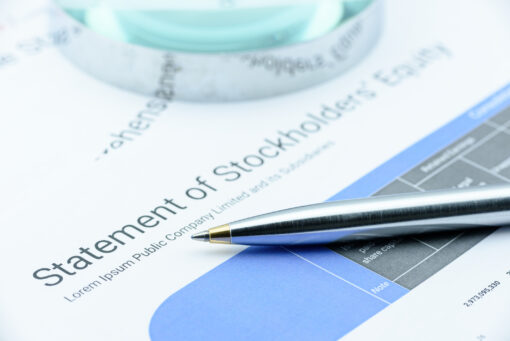
Bankruptcy is a complex process, and when a business declares bankruptcy, one of the primary concerns for many is the fate of its stocks. Understanding how bankruptcy affects stocks is crucial for investors and employees holding stock options. In this blog, we will delve into what typically happens to stocks when a business files for bankruptcy.
If you need to consult with an attorney about the options to file for business bankruptcy, contact The Law Offices of Paul Y. Lee at 951-755-1000 for a free consultation.
The Initial Effect on Stocks
When a business declares bankruptcy, its stocks’ immediate impact is often negative. This is particularly true in the case of Chapter 7 bankruptcy, where the company ceases operations and liquidates its assets. Stocks may lose most, if not all, of their value, as shareholders are last in line to receive any payouts. The uncertainty surrounding the company’s future can lead to a rapid decline in stock prices, leaving investors facing significant losses.
Chapter 11 Bankruptcy and Stockholder Hope
In the case of Chapter 11 bankruptcy, which allows for business reorganization, the impact on stocks can be less dire. Although initial reactions might still see a decrease in stock value, there is potential for recovery. Under Chapter 11, businesses aim to restructure debts and improve operations, potentially leading to a revival of the company’s financial health and, subsequently, its stock value. However, this outcome is not guaranteed, and investors should proceed with caution.
Stock Delisting and Trading
A significant consequence of bankruptcy is the potential delisting of the company’s stocks from major stock exchanges. Once delisted, these stocks often move to over-the-counter (OTC) trading, which is less regulated and comes with higher risks. Trading in OTC markets often involves lower volumes and less liquidity, making it harder for investors to sell their stocks.
The Hierarchy of Payment
In the event of asset liquidation, it’s important to understand the hierarchy of payment. Secured creditors, like banks and bondholders, are first in line. Stockholders, as unsecured creditors, are at the bottom of this hierarchy. This means they are among the last to receive any form of compensation, and often, there is little to no money left to distribute to them.
Considering the Options for Stockholders
For stockholders, the decision to hold or sell their stocks post-bankruptcy announcement is critical. If a business is undergoing reorganization, there might be hope for stock value recovery. However, this process can be lengthy and uncertain. Selling stocks might result in immediate losses, but holding onto them could lead to further devaluation. It’s a decision that requires careful evaluation of the business’s potential to recover and the investor’s tolerance for risk.
Seeking Professional Advice
Navigating the complexities of bankruptcy as a stockholder can be challenging. It’s advisable to seek professional guidance from a financial advisor or an attorney. They can provide tailored advice based on the specific circumstances of the bankruptcy and your individual investment strategy. The Law Offices of Paul Y. Lee is here to offer expert legal advice and guidance in these situations. You can reach us at 951-755-1000 for a consultation on your stock-related concerns in a bankruptcy scenario.

